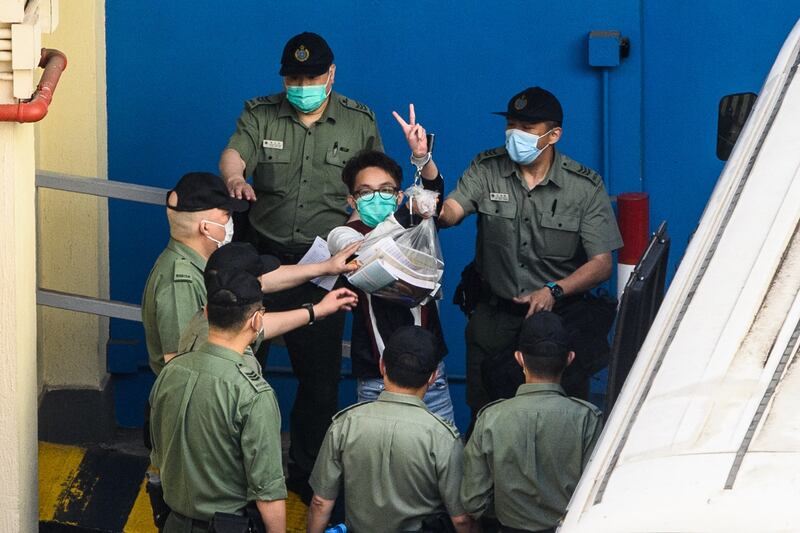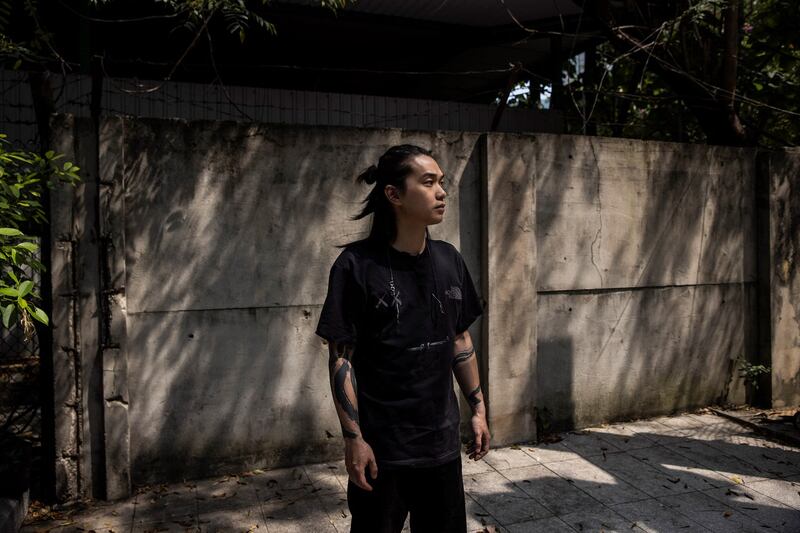Hong Kong's government has vowed to pursue democracy activists who flee overseas "for life," announcing arrest warrants and bounties for information leading to the arrest of at least 13 of them.
But for those who stayed in Hong Kong and served their time, the effects of being a political prisoner could also last for the rest of their lives.
Released Hong Kong political prisoners – democracy activist Figo Chan and former social worker Lau Ka Tung – say they are being shut out of employment opportunities despite having served their sentences.
Once at the forefront of social movements and political activism, Chan, formerly a prominent figure in the Civil Human Rights Front, found himself in a challenging predicament on his release from prison.
Chan spent more than two years behind bars after being convicted for taking part in “unauthorized assemblies” in 2019 and 2020.
But his release in October 2022 didn’t mark the end of his struggles; instead, it just presented new ones, as he grappled with the after-effects of his sentence.
Chan told RFA Cantonese in a recent interview that he is now effectively tainted by the political nature of the charges against him, in a city where the authorities continue to wage a crackdown on dissent and political activism, with even more stringent national security legislation on the way.

“Companies are willing to interview me,” he said, “but once they see my criminal record on the application, the conversation ends there.”
"The fact that I've been on the front pages of [China-owned] newspapers like the Wen Wei Po and Ta Kung Pao only compounds the problem," he said.
‘Uphill battle’
And finding housing is another challenge, Chan has found. “Landlords become wary upon seeing my name, which makes it harder to find a place to live.”
Most of the non-government, civil society groups who would previously have been a natural home for Chan have dissolved to protect staff from the 2020 National Security Law, which criminalizes overseas funding and contact with foreign governments.
“Everything I’ve done over the past decade has been focused on social activism and party activism,” Chan said. “I lack experience in other fields.”
“That, coupled with the stain of a criminal record, has meant finding a job has been an uphill battle,” he said.
“I thought about a career in insurance,” Chan said. “But it’s simply not possible with a criminal record.”
“The same goes for real estate or any licensed profession,” he said. “Having a record closes doors that companies or government bodies would otherwise open for me.”
After turning down the dial on his activism and declining to speak to overseas media, Chan eventually managed to get a job at a Japanese restaurant, which he sees as a modest, yet hopeful step toward rebuilding his life.
Seen on the news
Chan isn’t alone. Many of his fellow activists have told him they faced similar challenges upon release from prison, running into barriers at every turn due to their criminal record.
Former social worker Lau Ka Tung said the situation is even starker for highly trained, licensed professionals like teachers and social workers who joined the pro-democracy movement.
Even if their activism has been completely peaceful, their careers are in jeopardy the moment they are arrested, Lau said.

The stigma of being associated with the protest movement means that employers and regulatory bodies want to take no chances, making it hard for them to be employed in their old job on release from prison, he said.
“A lot of social workers had letters from [regulatory bodies] immediately after their arrest,” Lau said.
“When I received a letter, the Social Worker Registration Bureau wrote that they saw on the news that there was someone with my name [arrested], and asked if it was me,” Lau said.
“They are supposed to test whether or not you meet the qualifications to call yourself a social worker,” he said. “But this happens the moment you are arrested.”
Teachers and social workers often plan their departure from Hong Kong while in prison, then hope to requalify to continue in their profession in another country.
“The more professional your job, the harder it is to find suitable work,” Lau said. “Blue-collar workers actually find it easier to find a job.”
Translated by Luisetta Mudie .
